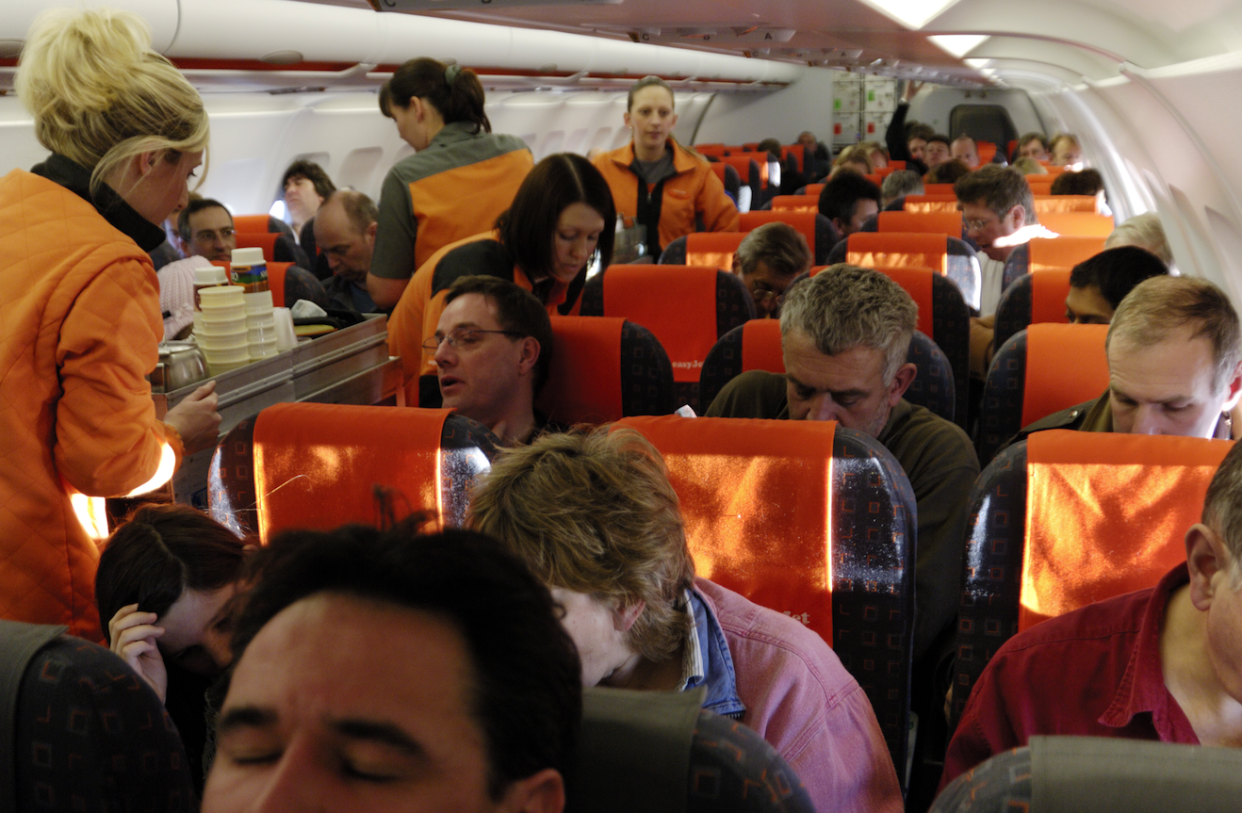Airline cabin crews are 'more likely to develop cancer'

Airline cabin crew are much more likely to develop cancer, new research has claimed.
A study of more than 5,000 flight attendants fond that cases were higher when every form of the disease was examined.
Specifically, the risk of breast cancer was around 50 percent more for air stewardesses than other women.
Male flight attendants, meanwhile, were found to have higher rates of melanoma and non melanoma skin cancer – with a 1.2 percent and 3.2 percent chance of developing the respective diseases.
In contrast, the general population faces of a risk of 0.69 percent for melanomaa and 2.9 percent for non melanoma skin cancer.
MOST POPULAR TODAY ON YAHOO
Brit model Chloe Ayling reveals how she was willing to have sex with her kidnapper to stay alive
‘Rush hour prowler’, 51, who groped girls as young as eight revealed as wealthy businessman
Saddest breakfast ever? Awful-looking £5.70 eggs on toast at Luton Airport goes viral
Couple jailed for life for torturing and burning French nanny to death
Cambridgeshire bus crash: At least two killed after double decker ploughs into lorry on A47
The surprise findings comes in spite of the healthy lifestyles undertaken by cabin crews as they travel across the globe.
Harvard’s Dr Irina Mordukhovich said: ‘Our study is among the largest and most comprehensive studies of cancer among cabin crew to date and we profiled a wide range of cancers.
‘Consistent with previous studies, we report a higher lifetime prevalence of breast, melanoma and non-melanoma skin cancers among flight crew relative to the general population.
‘This is striking given the low rates of overweight and smoking in this occupational group.’
Although a decisive reason for the increased risk is yet to be revealed, it’s believed that sleep deprivation and irregular life patterns could be among the main reasons.
‘We were surprised to replicate a recent finding that exposure to work as a flight attendant was related to breast cancer exclusively among women with three or more children’, stated Dr Mordukhovich.
‘This may due to combined sources of circadian rhythm disruption – that is sleep deprivation and irregular schedules – both at home and work.’
Dr Mordukhovich added: ‘Our study informs future research priorities regarding the health of this understudied group of workers, who have a wide range of job-related exposures to known and probable carcinogens including cosmic ionizing radiation, circadian rhythm disruption and possible chemical contaminants in the aircraft cabin.
‘Our findings raise the question of what can be done to minimize the adverse exposures and cancers common among cabin crew.’

 Yahoo News
Yahoo News 

